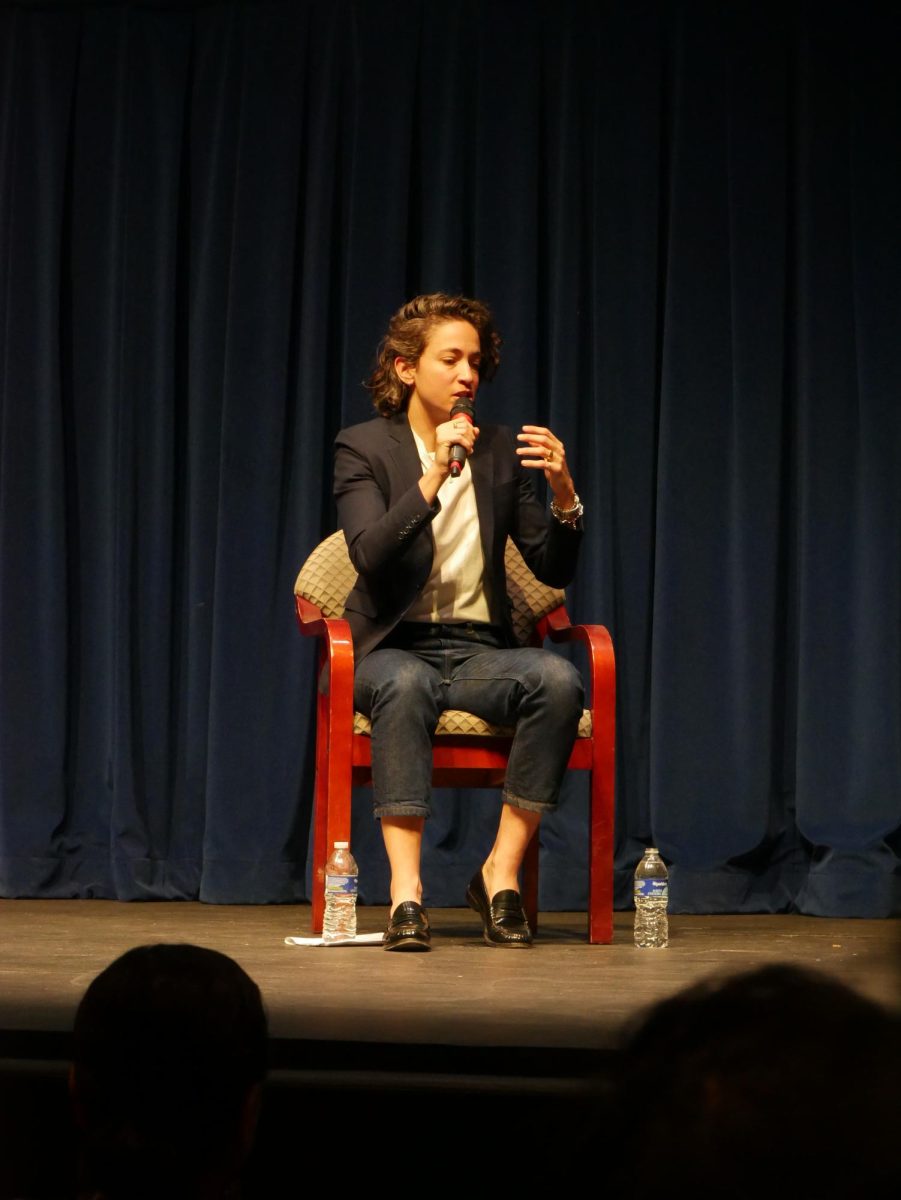By Veronica Morley
Features Editor

Photo courtesy of CSUB BPA
President Trump’s promise for tax cuts by Christmas has resulted in the Republicans’ tax bill, and students at CSU Bakersfield could end up paying thousands more in taxes in 2018.
Assistant Professor of economics Richard Gearhart says that CSUB graduate students will face the greatest impact on campus from the new bill. Gearhart holds a doctorate in economics from Clemson University and is a member of the editorial board for the Kern Economic Journal.
Graduate students are eligible for partial or full tuition waivers. Under the new bill, the entire value of those waivers would be added to students’ taxable income.
“So let’s say you don’t pay $5,000 of tuition, that’s now considered income, and you actually get taxed on that $5,000 of income. Which means you’ll have to pay at the end of the year 1,000 more dollars than you normally would,” said Gearhart.
Graduate students will receive the hardest hit, but they will not be the only students on campus affected. Undergraduate students may not see an initial impact, but eventually they too will feel the pain. Especially if they have taken out student loans, or their parents are assisting in paying tuition.
Once the bill becomes law, it will essentially cut students’ ability to deduct student loan interest from their taxable income. The repeal of the student loan interest deduction is meant to help pay the increase in the debt and the deficit by reducing itemized deductions further.
Parents assisting or paying completely for tuition will be affected as well. If they reach their maximum amount of federal student loans, they may have to take out more in private student loans.
According to Gearhart, private student loans have higher interest rates, and their repayment terms are less generous and start earlier. “I think you’re going to see a lot more parents putting themselves under increasing financial burden to send their students to school or simply stating, ‘I can’t afford to.’”
Students’ tuition is not the only impact this bill may have on CSUB. The Student Health Center may be burdened with treating more students due to the repeal of the individual mandate and the Affordable Care Act.
Since Justice Roberts of the Supreme Court declared the individual mandate to be a tax in 2012, this repeal will inevitably lead to the death of the ACA.
“You look at the Student Health Center,” said Gearhart. “They do a fantastic job, but they’re rather ill-equipped to handle a large-scale outbreak of anything. They have one doctor on call, a couple nurse practitioners. They can’t see someone easily and then what do you do with the students?”
Finding out-of-state hires may be another challenge CSUB faces as a result of this bill. Professors hired from out of state receive the benefit of deducting California state and local income taxes on their federal taxes.
If these deductions are cut, it will significantly lessen the desire to work here. In turn, the staff and faculty already teaching at CSUB will be stretched even further.
“The lecturers, the adjuncts, the instructors, they’re teaching five to six classes to make ends meet. They might have to teach an extra class each semester to offset the tax burden. What does that do to students?” said Gearhart.
Bakersfield College will also take a hit since the first two years of community college is free in California.
Similarly to graduate and masters students, community college students can receive waivers to pay their tuition. Under the new bill, it could be possible that this too will be considered taxable income.
It seems higher education institutions and students are getting a raw deal with this bill. “The biggest reason why?” said Gearhart, “Because college students don’t vote. Or young adults don’t vote in general, so politicians really don’t care.”
Although millennials are starting to rival the other generations in the voting age population, their turnout still lingers far below the rest. According to the Pew Research Center, in the 2016 presidential election only 49.4 percent of eligible millennials voted. This pales in comparison to the other generations whose eligible voter turnout ranged from 62 to 70 percent of their eligible voting populations.
Republicans in the House of Representatives were prepared to send their bill to vote in the Senate on Nov. 30. They were, however, derailed by the the Joint Committee on Taxation. The Committee released an economic report showing that this bill would increase the overall budget deficit by $1 trillion over the next 10 years.
President Trump tweeted, “Republicans Senators are working hard to pass the biggest Tax Cuts in the history of our Country. The Bill is getting better and better. This is a once in a generation chance. Obstructionist Dems trying to block because they think it is too good and will not be given the credit!”
On Dec. 1, after a number of revisions were made by the GOP to address the deficit concerns, the Senate approved the bill.
In a press conference held that night by Senate Republicans, Sen. Orrin Hatch (UT) said, “This is a great achievement that will literally help millions and millions of young people in our society and our society as a whole.”







